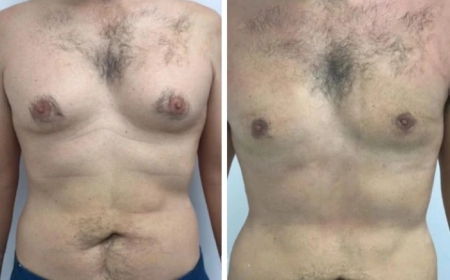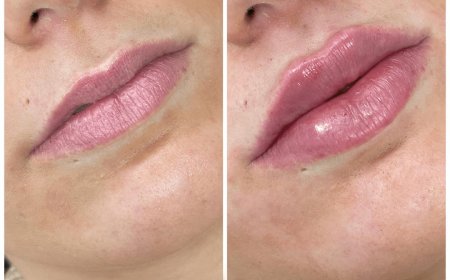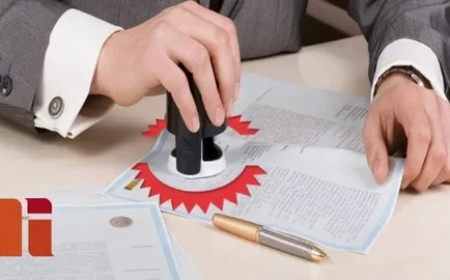Clear, Concise, and Clinical: Mastering Technical Writing for the Modern Nurse
Clear, Concise, and Clinical: Mastering Technical Writing for the Modern Nurse

Clear, Concise, and Clinical: Mastering Technical Writing for the Modern Nurse
Introduction: Beyond Bedside Skills The Writing Revolution in Nursing
In a world where healthcare is evolving faster than ever, the role of nurses hasbest nursing writing servicesdramatically expanded. No longer confined to bedside care, todays nurses are at the forefront of research, policy, education, digital documentation, and interdisciplinary collaboration. One essential skill underpins all of these evolving rolestechnical writing.
Technical writing in nursing refers to the precise, structured, and clear written communication used in clinical practice, education, and healthcare documentation. Whether its drafting a patients electronic health record, composing a research summary, or creating patient discharge instructions, nurses must write with exactitude and professionalism. Mistakes, ambiguity, or poor structure in documentation can lead to dire consequencesincluding compromised patient safety, legal liability, or communication breakdowns across care teams.
For modern nurses, mastering technical writing is not optional. Its an integral part of effective practice. However, many nursing students and even practicing nurses find technical writing challenging due to lack of training, increasing digital complexity, and growing expectations in accuracy and accountability. Fortunately, structured support and skill-building can transform writing from a stressor into a powerful clinical tool.
This article explores the importance of technical writing in nursing, the specific types and skills involved, common pitfalls, the role of writing services and training, and the long-term benefits for nurses in various specialties.
Chapter 1: Defining Technical Writing in the Nursing Context
Technical writing in nursingis the process of producing written content that is:
-
Focused onclinical accuracy
-
Presented in astructured and standardized format
-
Aimed atclear communication across healthcare settings
-
Used forlegal, educational, and operational purposes
It differs from narrative or academic writing because its goals areMSN Writing Servicesimmediacy, clarity, and practical application. A nurses technical writing may be read by physicians, pharmacists, administrators, auditors, insurance companies, legal personnel, and patientseach needing accurate, objective information that informs action.
Common formats of technical writing in nursing include:
-
Electronic Health Record (EHR) entries
-
SBAR (Situation, Background, Assessment, Recommendation) reports
-
Progress and shift notes
-
Care plans and clinical pathways
-
Incident reports
-
Discharge summaries
-
Patient education materials
-
Policy and protocol documents
-
Research summaries and quality improvement reports
Each of these formats requires its own tone, structure, and objectivebut all demandprecision in practice.
Chapter 2: Why Technical Writing Skills Matter in Modern Nursing
The need for technical writing has increased due to several factors:
1. Digitization of Healthcare:
With widespread implementation of EHRs, nurses are expected to chart every detail of patient care in real time. This documentation becomes a permanent legal and medical record.
2. Interdisciplinary Communication:
Nurses must communicate clearly with other healthcare professionals, often throughnurs fpx 4000 assessment 2written formats. Miscommunication can delay treatment, misguide medication administration, or cause adverse outcomes.
3. Legal and Ethical Accountability:
Every written note can be reviewed in audits, malpractice cases, or quality control investigations. Vague, biased, or inaccurate documentation exposes nurses and institutions to serious risk.
4. Evidence-Based Practice:
Modern nurses are expected to integrate research findings into clinical decision-making. This often involves writing literature reviews, summaries, or protocols based on the latest science.
5. Patient Safety and Empowerment:
Well-written patient education materials ensure patients understand their diagnoses, medications, and follow-up care, reducing hospital readmissions and improving satisfaction.
Technical writing is not just about documentationits aboutensuring continuity of care, fostering collaboration, protecting against liability, and driving better outcomes.
Chapter 3: Core Elements of Effective Technical Writing in Nursing
To write effectively in technical nursing contexts, students and professionals must develop several core competencies:
1. Clarity:
Use of unambiguous language, eliminating jargon when not appropriate, and ensuring each point is fully understandable to all readers.
2. Conciseness:
Avoiding unnecessary words or repetition, and distilling information to the essentials. EHRs and reports benefit from brevity without loss of critical detail.
3. Accuracy:
Documenting the right information, using correct terminology, spelling, andnurs fpx 4005 assessment 2measurement units. Small errors (e.g., a wrong dosage) can have major impacts.
4. Objectivity:
Avoiding judgmental or emotional language. Notes should be factual, neutral, and professionally detached.
5. Structure and Format:
Following established frameworks like SOAP, SBAR, or PIE ensures that communication is standardized, easy to follow, and consistent with institutional policies.
6. Legal and Ethical Awareness:
Understanding the importance of time-stamping, error correction, HIPAA compliance, and confidentiality when handling sensitive patient information.
7. Audience Awareness:
Knowing whether the document is for another nurse, a physician, an auditor, or the patient, and tailoring the tone and detail level accordingly.
Mastering these elements allows nurses to write not just correctly, but impactfullyimproving care while safeguarding professional standards.
Chapter 4: Types of Technical Writing Nurses Must Master
Each area of nursing involves different types of writing. Below are several examples with associated technical writing demands:
1. Electronic Health Records (EHR):
-
Use drop-down fields, checkboxes, and free-text entries.
-
Chart assessments, interventions, and responses.
-
Avoid copy-paste redundancy.
-
Write legally defensible notes.
2. SBAR Reports:
-
Used for shift handovers and physician updates.
-
Requires concise delivery of essential information.
-
Follows a set order: Situation, Background, Assessment, Recommendation.
3. Incident Reports:
-
Required after adverse events or near misses.
-
Must be factual, non-blaming, and clearly detail the sequence of events.
4. Care Plans:
-
Link assessments to nursingnurs fpx 4015 assessment 2diagnoses, outcomes, and interventions.
-
Follow frameworks like NANDA-I, NIC, and NOC.
-
Use measurable, patient-centered goals.
5. Discharge Instructions:
-
Use plain language.
-
Provide step-by-step care guidelines.
-
Include red flags and emergency actions.
6. Research Abstracts and Quality Improvement Proposals:
-
Written in APA or scientific format.
-
Require synthesis of literature.
-
Often include objectives, methods, results, and implications.
Each of these demandsspecialized technical fluencyfrom medical terminology to writing style to format structure.
Chapter 5: Challenges Faced by Nursing Students and Professionals
Despite its importance, many nursing students and even seasoned nurses find technical writing difficult due to:
1. Lack of Formal Training:
Most nursing programs emphasize clinical skill development, with limited focus on writing. When writing is assigned, feedback often centers on content, not clarity or structure.
2. ESL Barriers:
Non-native English speakers struggle with grammar, syntax, and idiomatic phrasing. These challenges are amplified in high-pressure clinical documentation environments.
3. Time Constraints:
Heavy workloads, especially in hospitals, leave little time for careful writing. Nurses may rush documentation, leading to omissions or ambiguity.
4. Emotional Involvement:
Writing about emotionally charged situations (e.g., death, trauma, abuse) can affect objectivity and lead to narrative rather than technical tone.
5. Overreliance on Technology:
Autofill and copy-forward features in EHRs can cause documentation errors or inconsistencies if not reviewed thoroughly.
Recognizing these challenges is the first step toward improvement.
Chapter 6: Strategies to Improve Technical Writing Skills in Nursing
For students and practicing nurses seeking to strengthen their writing, the following strategies are effective:
1. Practice with Templates:
Use established formats like SOAP, SBAR, and PIE during simulations and assignments. Repeated use leads to fluency.
2. Read Sample Notes:
Analyze well-written clinical notes to understand tone, structure, and phrasing.
3. Take Short Writing Workshops:
Attend sessions on healthcare documentation, APA style, or reflective writing offered by universities, hospitals, or online platforms.
4. Use Writing Assistive Tools Responsibly:
Grammarly, Hemingway App, and Turnitin can identify issues and help polish drafts. However, they should supplementnot replaceyour own judgment.
5. Seek Professional Feedback:
BSN writing services and clinical mentors can offer detailed, targeted feedback. Understanding what works (and what doesnt) is key.
6. Write Every Day:
Even short reflections or notes build muscle memory and reinforce best practices.
7. Join Peer Review Groups:
Collaborate with other students or colleagues to exchange notes and offer constructive critiques.
Chapter 7: The Role of Professional Writing Support Services
Professional BSN writing support services can accelerate learning by:
-
Providingcoaching on technical documentationformats
-
Offeringediting and feedbackthat improves clarity and compliance
-
TeachingAPA citationand formatting rules for academic writing
-
Supportingnon-native speakersin grammar and professional tone
-
Reviewing capstone projects, care plans, or clinical journals for structure and precision
These services are especially useful for:
-
ESL or international students
-
Nurses transitioning into leadership or education roles
-
Students preparing for licensing or advanced degrees
-
Clinicians creating policy, training, or research documents
By turning to expert support, nurses not only improve grades or reportsbut build skills that will serve them for decades.
Chapter 8: Long-Term Benefits of Technical Writing Mastery
Strong technical writing pays dividends throughout a nurses career:
1. Improved Patient Outcomes:
Clear, complete documentation ensures consistent care, correct interventions, and better communication among care teams.
2. Reduced Legal Risk:
Accurate records protect nurses and institutions from malpractice claims or compliance violations.
3. Enhanced Professional Reputation:
Nurses who write well are often trusted to lead projects, educate others, and represent departments in publications or conferences.
4. Opportunities in Advanced Roles:
Nurse practitioners, educators, researchers, and administrators all rely heavily on technical writing. Mastery opens career pathways.
5. Contribution to Policy and Advocacy:
From safety protocols to public health initiatives, well-written proposals and reports help nurses influence change on larger scales.
Technical writing is not just about "getting by"its aboutamplifying your voice in a complex, interdisciplinary, and data-driven profession.
Conclusion: Writing as a Core Nursing Competency
In the modern healthcare ecosystem, nursing excellence is measured not only by bedside manner or clinical skill, but also by communicationand that includes technical writing. Whether documenting a shift report, drafting a research paper, or educating a patient, the ability to write precisely and professionally is acore competencyfor every nurse.
The good news is that technical writing is a skillnot a talent you're born with, but a capability you can develop. Through consistent practice, targeted feedback, ethical use of writing support, and a clear understanding of audience and purpose, todays nursing students and professionals can transform their writing into a clinical asset.
Because in nursing, words do more than describethey protect, instruct, advocate, and heal.
















